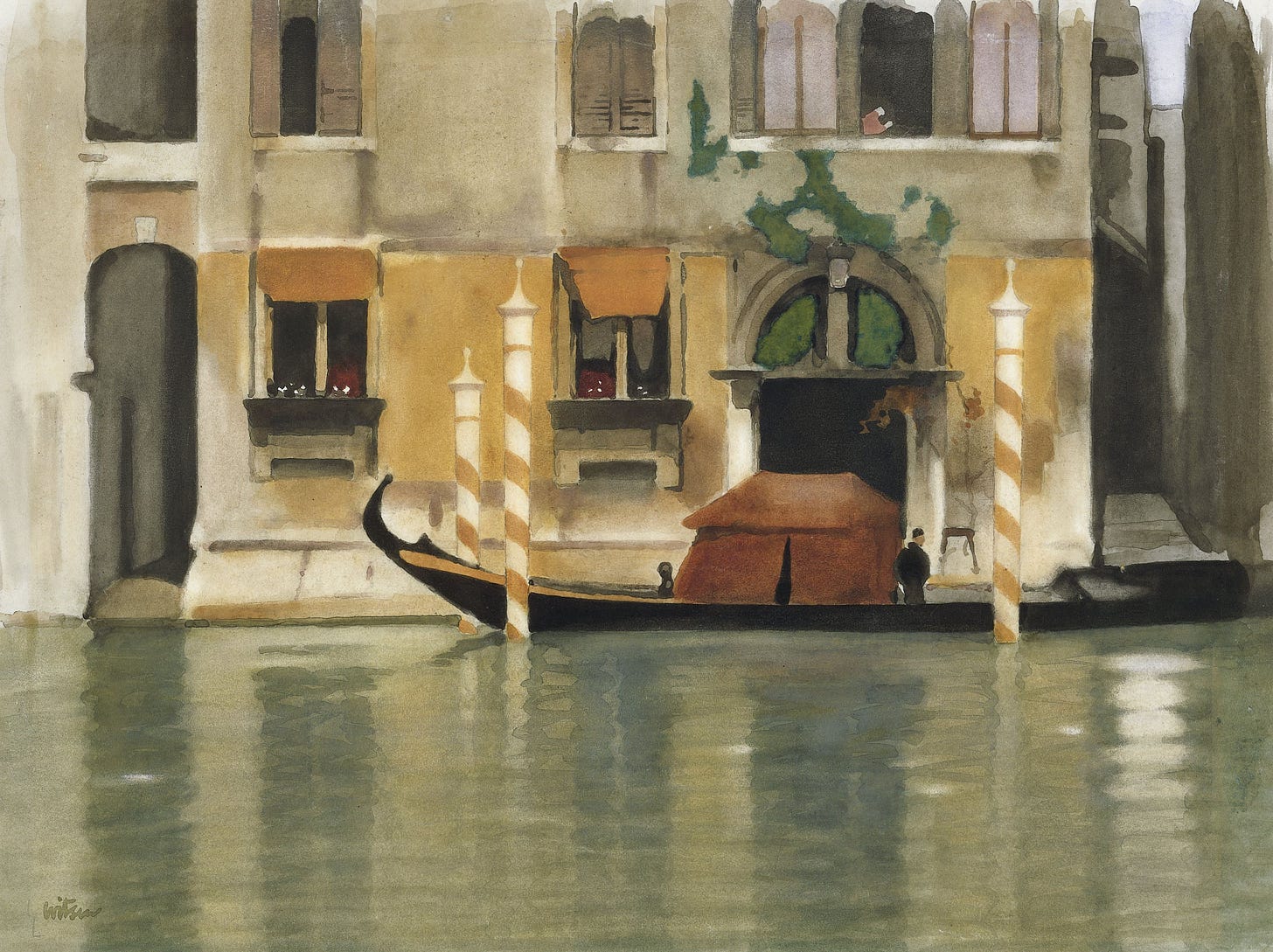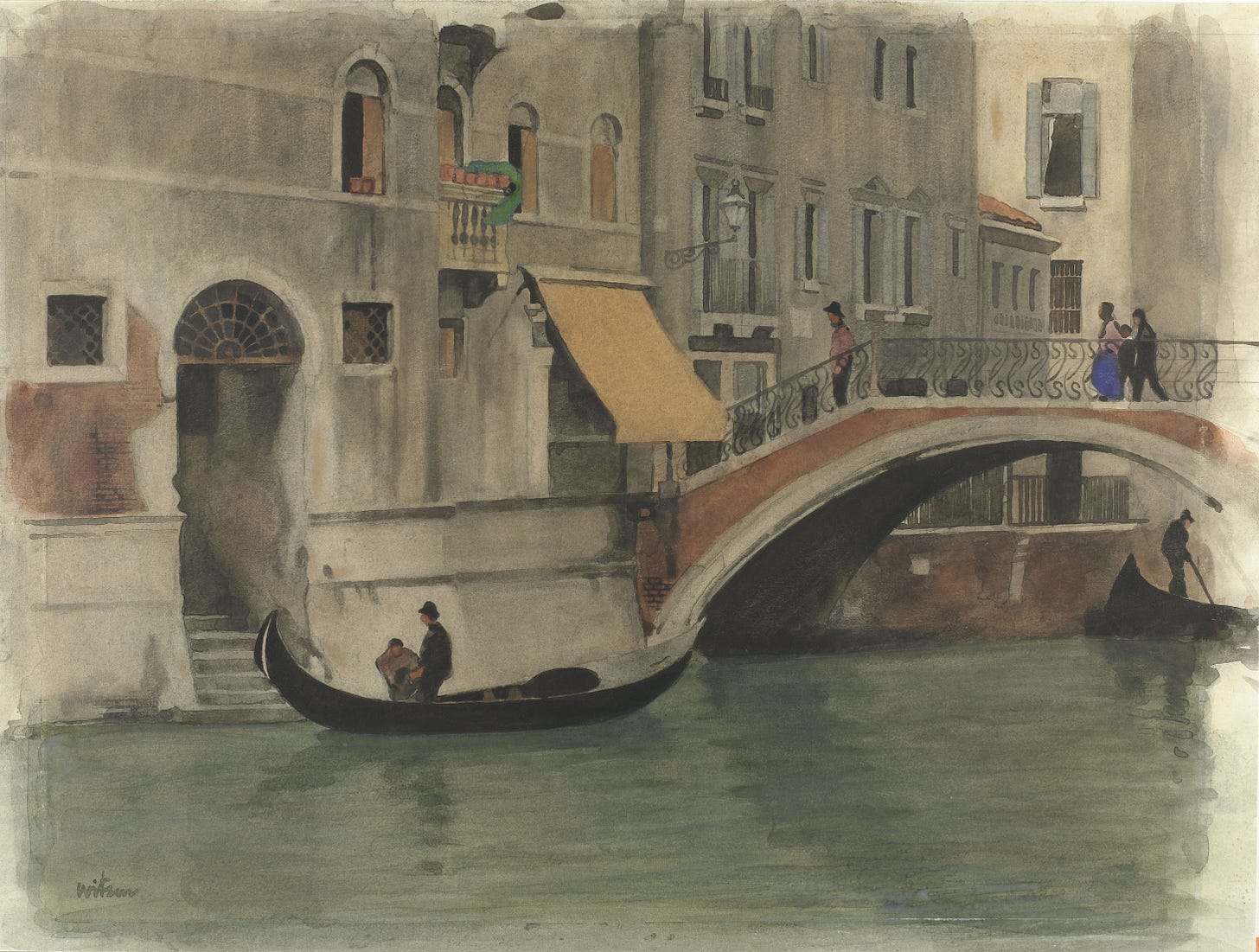Stories about Europe's decay are of all times
Stories about Europe's decay are of all times, and they often take place in Venice.
In Ilja Leonard Pfeijffer's best-selling novel Grand Hotel Europa, a writer leaves Venice after a break-up. The protagonist overthinks what went wrong in his relationship, while staying in a stately hotel that lost its glory.
The hotel is taken over by a Chinese businessman, who replaces all of the art with plastic flowers. The protagonist is enraged as he sees the hotel turning into a theme park, just like Europe — with Venice, the city that is flooded by tourists, as a frightening example. "I don't want to have to conclude that, like the hotel I'm staying in and the continent it's named after, my best years are behind me and that my only real prospect for the future is to live off my past," he asserts.
Stories about decay are of all times — and they often take place in Venice.
The palazzi along the Grand Canal spell more opulence per square inch than anywhere in the world — André Aciman writes in Alibis, his anthology of essays. But everything is frail, the author continues. "Palaces stand together like majestic old dowagers with rotting teeth and magnificent hairdos who do not fall, partly because they've learned to lean together for support but also because, despite their squat wizened forefronts, they possess the weary certainty of the aging rich who know that they're not going anywhere. You, however, are just passing through."
In this fragment, Aciman changes the perspective. It's not the city that once was the center of a civilization that's falling — it's you, the spectator itself.
Both Venice and its observers might once disappear, Cees Nooteboom reminds us in Venice: The Lion, the City and the Water. Worms and small shells must have been the first inhabitants, "and suppose the city ever sinks like an infinitely slowed-down Titanic, back into the soft soil on which it still seems to float, they might be the last. As if between those two moments, the world had dreamed something impossible, a dream of palaces and churches, of power and money, of dominion and decay, a paradise of beauty that has been expelled from itself because the earth could not bear such a great miracle."
Venice could be entirely underwater as early as the year 2100, studies say. A dike that took seventeen years to construct has to, literally, turn the tide.
Last December, when the city was threatened by flood, and the Venetians wanted to use the dike for the first time, the national government activated the dam's mechanism too late. Water in the streets of Venice rose as high as 145 centimeters (57 inches).
One could read the event as an expression of the Italian sprezzatura — the studied carelessness Italians are famous for. Perhaps we want to see yet another sign of Europe's decay. But it's always easier to notice stains on something beautiful than on something unsightly.
In their attempt to force the sea to retreat, Venetians still dream of something impossible. The writers that describe Europe's decay are dreaming in a similar fashion. The ability to imagine a downfall inspires them to imitate and improve the art they fear will soon be forgotten.
Pfeijffer's Grand Hotel Europa echoes Thomas Mann's Magical Mountain, in which the protagonist, Hans Castorp, contemplates the downfall of Europe from a hotel in the Swiss Alps. To Tobias Habert of Süddeutsche Zeitung Magazine, Pfeijffer admitted that Europe's downfall may never come as long as "it's possible to write a book about it every hundred of years."
The images in this newsletter are from the collection of the Rijksmuseum — they are made by Willem Witsen (1870-1923), who visited Venice in 1914.









Of course there are many more books that talk about (Europe’s) downfall. What’s your favorite? Let me know in the comments.